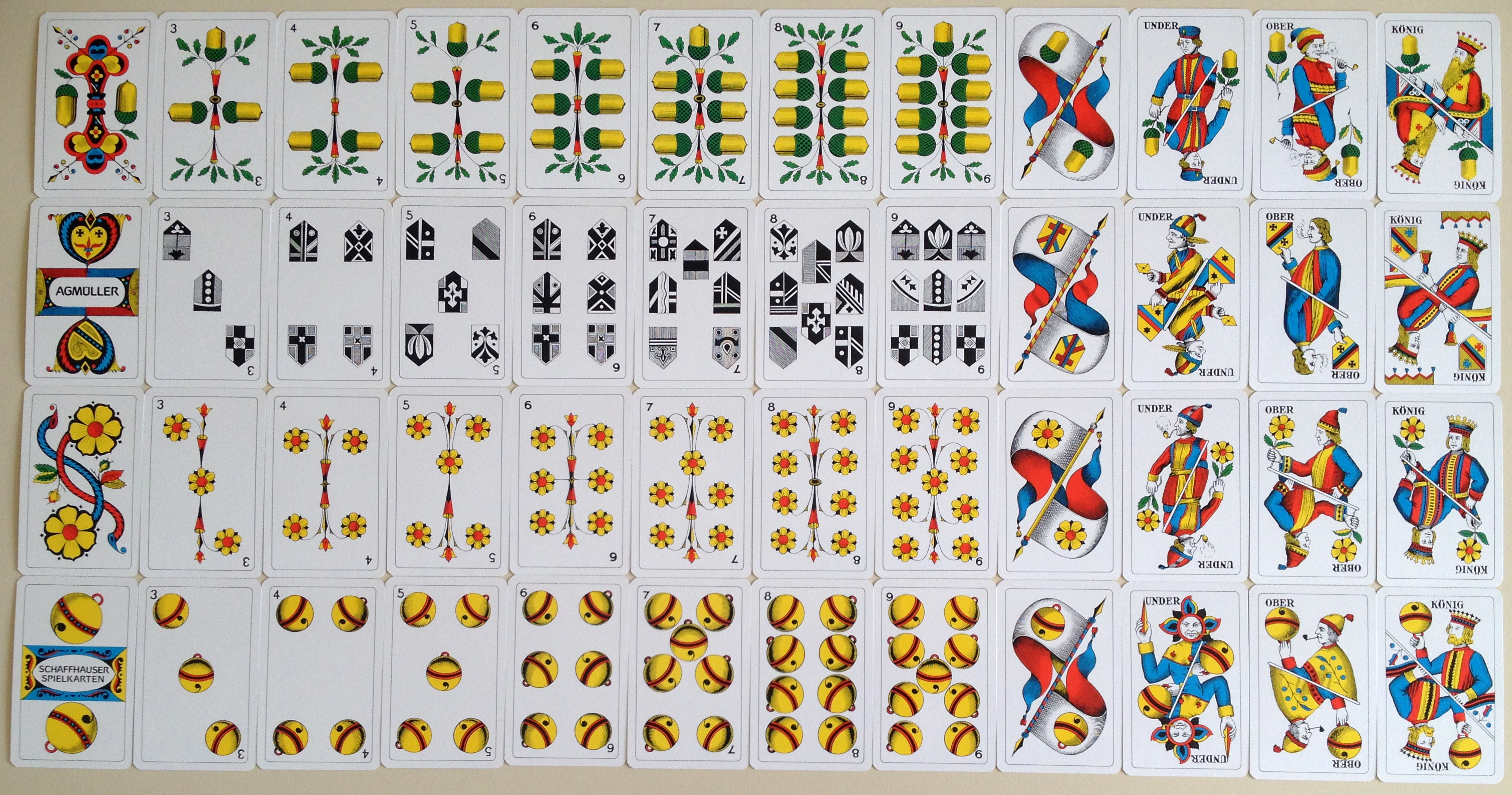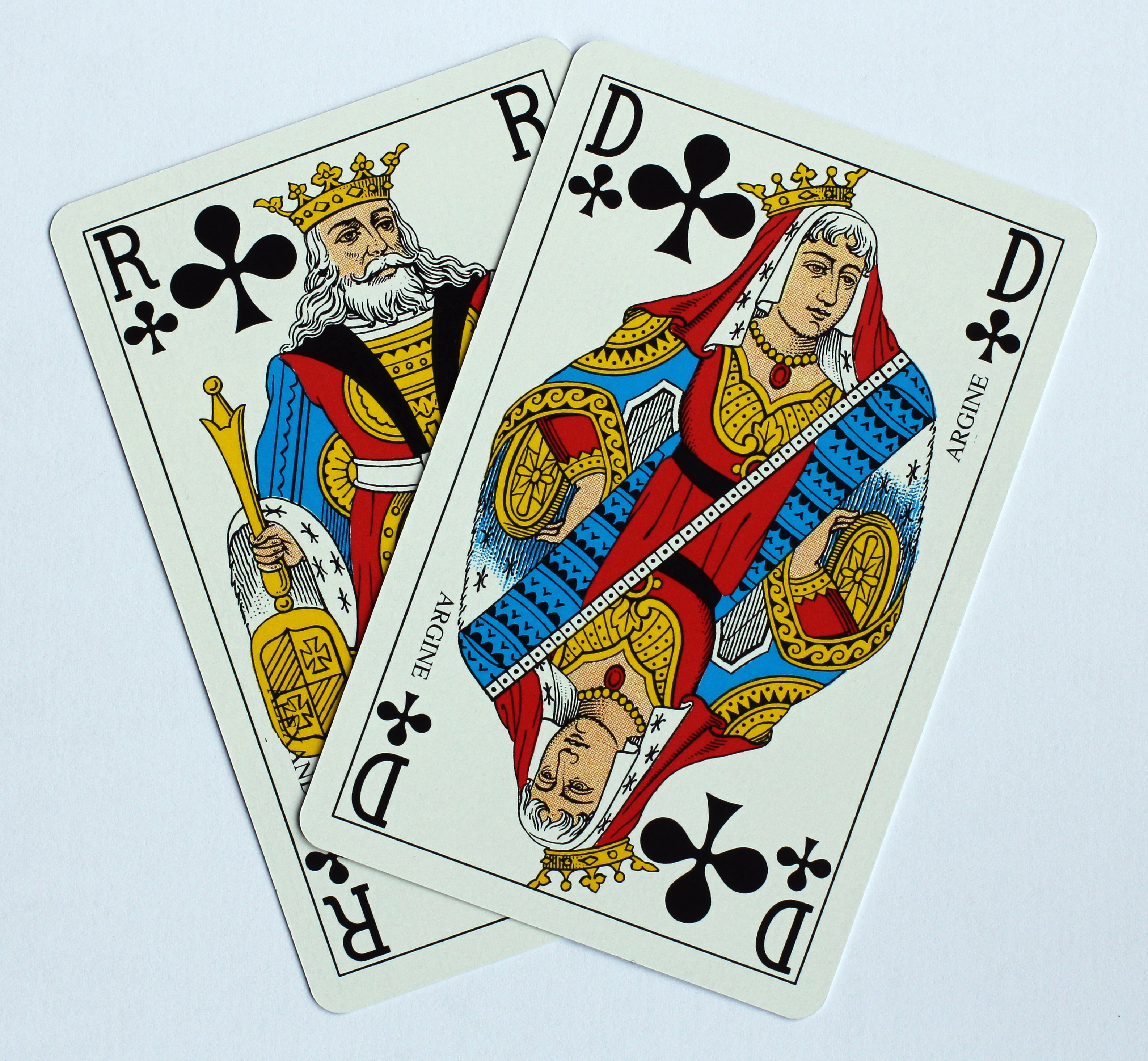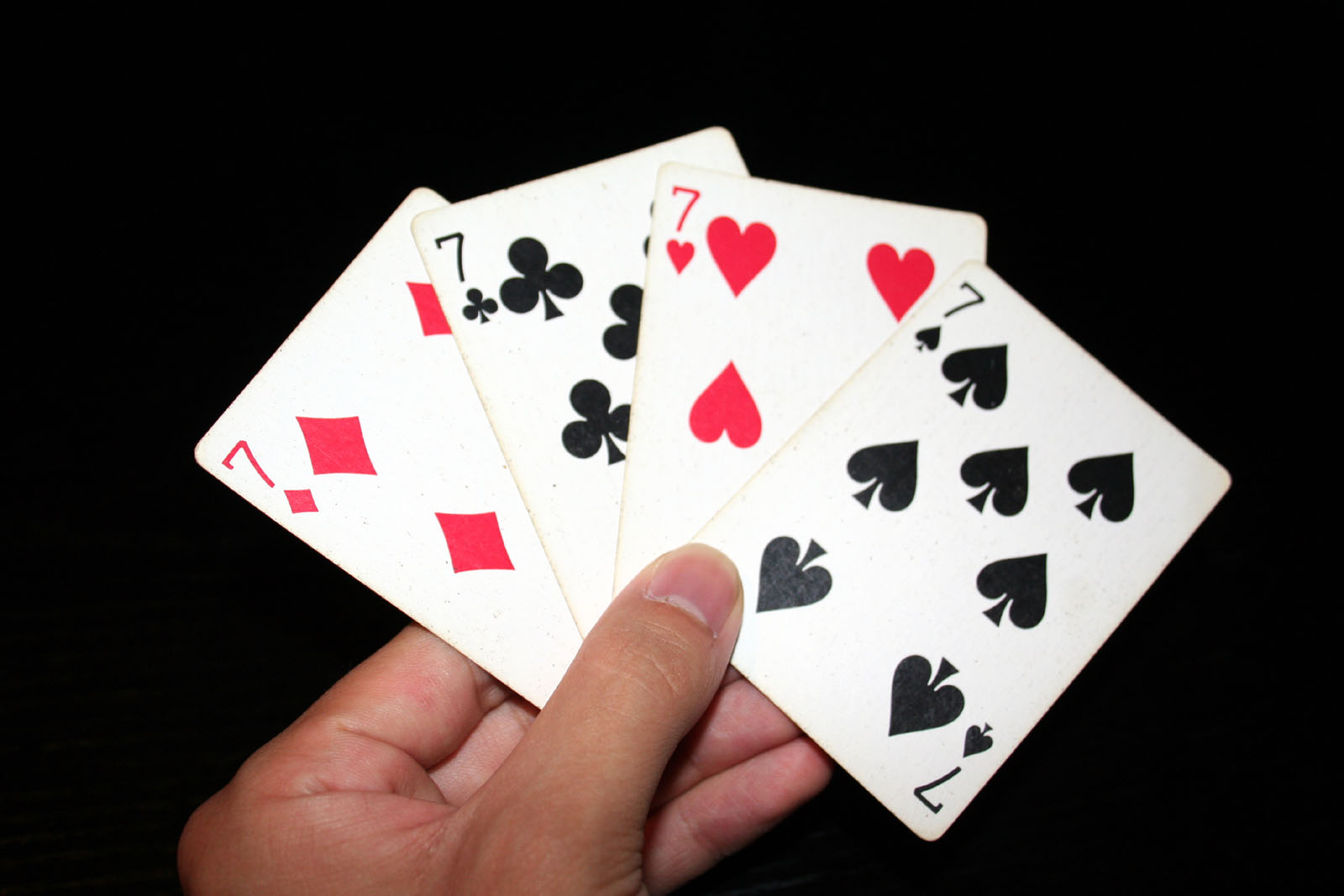|
Jass
:Jass ''was also an early name for Jazz music. For other uses, see JASS.'' Jass ()David Parlett ''The Oxford guide to card games'', pg. 292-293, David Parlett (1990) is a family of trick taking, Ace-Ten card games and, in its key forms, a distinctive branch of the Marriage family. It is popular in its native Switzerland as well as the rest of the Alemannic German-speaking area of Europe, Italian South Tyrol and in a few places in Wisconsin and Ohio, USA. The most common variant of Jass is Schieber (in Vorarlberg also known as ''Krüzjass''), which is played by two teams of two players each. It is often considered Switzerland's national card game, and is so popular there that the Swiss have come to apply the name Jass to trick-taking card games in general. It is estimated that there are over 70 variants of Jass. The game is so widespread in Switzerland that it is regularly featured on radio and television, for example, radio programmes by SRF1 and the weekly television pro ... [...More Info...] [...Related Items...] OR: [Wikipedia] [Google] [Baidu] |
JASS (other)
:Jass ''was also an early name for Jazz music. For other uses, see JASS.'' Jass ()David Parlett ''The Oxford guide to card games'', pg. 292-293, David Parlett (1990) is a family of trick taking, Ace-Ten card games and, in its key forms, a distinctive branch of the Marriage family. It is popular in its native Switzerland as well as the rest of the Alemannic German-speaking area of Europe, Italian South Tyrol and in a few places in Wisconsin and Ohio, USA. The most common variant of Jass is Schieber (in Vorarlberg also known as ''Krüzjass''), which is played by two teams of two players each. It is often considered Switzerland's national card game, and is so popular there that the Swiss have come to apply the name Jass to trick-taking card games in general. It is estimated that there are over 70 variants of Jass. The game is so widespread in Switzerland that it is regularly featured on radio and television, for example, radio programmes by SRF1 and the weekly television progra ... [...More Info...] [...Related Items...] OR: [Wikipedia] [Google] [Baidu] |
Ace-Ten
An Ace-Ten game is a type of card game, highly popular in Europe, in which the Aces and Tens are of particularly high value. Description Many of Europe's most popular card games feature the Ace-Ten scoring system, where the cards count as Ace = 11, Ten = 10, King (playing card), King = 4, Queen (playing card), Queen or Ober (playing card), Ober = 3, Jack (playing card), Jack or Unter (playing card), Unter = 2. Pip cards below the Ten generally have no card point value and the pack is often shortened by removing the lower pip cards or 'non-counters'. This means that, in a typical shortened pack of between 20 and 36 cards, there are 120 card points and thus a winning total is typically 61 points. Wins are doubled for scoring three-quarters of the total points and trebled for winning every trick, a scoring system known as the Skat schedule after its "most illustrious" example, the German national game of Skat (card game), Skat. There are 3 branches of the Ace-Ten family: * Schafkop ... [...More Info...] [...Related Items...] OR: [Wikipedia] [Google] [Baidu] |
Swiss-German Cards
Parts of Swiss German speaking Switzerland have their own deck of playing cards referred to as Swiss-suited playing cards or Swiss-suited cards. They are mostly used for Jass, the "national card game" of Switzerland. The deck is related to the various German playing cards. Within Switzerland, these decks are called German or Swiss German cards. Distribution of the Swiss deck is roughly east of the Brünig-Napf-Reuss line, in Schaffhausen, St. Gallen (and in adjacent Liechtenstein), Appenzell, Thurgau, Glarus, Zürich, all of Central Switzerland and the eastern part of Aargau. Cards The suits are as follows: The most common deck has 36 cards, nine of each suit. The card values are, in ascending order, :six, seven, eight, nine, ''Banner'' (ten), '' Under'', ''Ober'', ''König'', '' As''. For the purposes of ''Jass'', the numbered cards (six to nine) have no point value, the banner has a value of ten points, the picture-cards Under, Ober, König have values of two, three and f ... [...More Info...] [...Related Items...] OR: [Wikipedia] [Google] [Baidu] |
Jazz
Jazz is a music genre that originated in the African-American communities of New Orleans, Louisiana in the late 19th and early 20th centuries, with its roots in blues and ragtime. Since the 1920s Jazz Age, it has been recognized as a major form of musical expression in traditional and popular music. Jazz is characterized by swing and blue notes, complex chords, call and response vocals, polyrhythms and improvisation. Jazz has roots in European harmony and African rhythmic rituals. As jazz spread around the world, it drew on national, regional, and local musical cultures, which gave rise to different styles. New Orleans jazz began in the early 1910s, combining earlier brass band marches, French quadrilles, biguine, ragtime and blues with collective polyphonic improvisation. But jazz did not begin as a single musical tradition in New Orleans or elsewhere. In the 1930s, arranged dance-oriented swing big bands, Kansas City jazz (a hard-swinging, bluesy, improvisationa ... [...More Info...] [...Related Items...] OR: [Wikipedia] [Google] [Baidu] |
Belote
Belote () is a 32-card, trick-taking, Ace-Ten game played primarily in France and certain European countries, namely Armenia, Bulgaria, Croatia, Cyprus, Greece, Luxembourg, Moldova, North Macedonia (mainly Bitola), Bosnia and Herzegovina and also in Saudi Arabia. It is one of the most popular card games in those countries, and the national card game of France, both casually and in gambling. It was invented around 1920 in France, and is a close relative of both Klaberjass (also known as bela) and Klaverjas. Closely related games are played throughout the world. Definitive rules of the game were first published in 1921. Within the game's terminology, ''belote'' is used to designate a pair of a King (playing card), King and a Queen (playing card), Queen of a trump suit, possibly yielding the game's name itself. Variations on the game include #Belot, Belot in eastern Europe, Baloot in Saudi Arabia, and Pilotta in Cyprus. Deck Much like Skat (card game), Skat, German style cards ar ... [...More Info...] [...Related Items...] OR: [Wikipedia] [Google] [Baidu] |
Klaverjas
Klaverjas () or Klaverjassen () is the Dutch name for a four player trick-taking card game using the piquet deck of playing cards. It is closely related to the card game klaberjass, which is popular internationally and also known as Bela, and various other names. It is one of the most popular card games in the Netherlands, traditionally played in cafes and social clubs. The game offers a considerable level of complexity and depth. It has numerous variants, but universal fundamental rules exists. History The name dates to 1890–95 from the Dutch word ''klaverjas'', combining ''klaver'' (the suit of clubs, literally "clover") plus ''jas'', the original name for the highest trump card.Random House Unabridged Dictionary 200at Dictionary.com According to Scarne,John Scarne ''Scarne on Card Games: How to Play and Win at Poker, Pinochle, Blackjack, Gin and Other Popular Card Games'' pg. 414 Dover Publications (2004) its origin has been variously claimed by the Dutch, Swiss, French, an ... [...More Info...] [...Related Items...] OR: [Wikipedia] [Google] [Baidu] |
Point-trick
A trick-taking game is a card or tile-based game in which play of a ''hand'' centers on a series of finite rounds or units of play, called ''tricks'', which are each evaluated to determine a winner or ''taker'' of that trick. The object of such games then may be closely tied to the number of tricks taken, as in plain-trick games such as contract bridge, whist, and spades, or to the value of the cards contained in taken tricks, as in point-trick games such as pinochle, the tarot family, briscola, and most evasion games like hearts. Trick-and-draw games are trick-taking games in which the players can fill up their hands after each trick. In most variants, players are free to play any card into a trick in the first phase of the game, but must ''follow suit'' as soon as the stock is depleted. Trick-avoidance games like reversis or polignac are those in which the aim is to avoid taking some or all tricks. The domino game Texas 42 is an example of a trick-taking game that is not ... [...More Info...] [...Related Items...] OR: [Wikipedia] [Google] [Baidu] |
Trick-taking Game
A trick-taking game is a card or tile-based game in which play of a '' hand'' centers on a series of finite rounds or units of play, called ''tricks'', which are each evaluated to determine a winner or ''taker'' of that trick. The object of such games then may be closely tied to the number of tricks taken, as in plain-trick games such as contract bridge, whist, and spades, or to the value of the cards contained in taken tricks, as in point-trick games such as pinochle, the tarot family, briscola, and most evasion games like hearts. Trick-and-draw games are trick-taking games in which the players can fill up their hands after each trick. In most variants, players are free to play any card into a trick in the first phase of the game, but must ''follow suit'' as soon as the stock is depleted. Trick-avoidance games like reversis or polignac are those in which the aim is to avoid taking some or all tricks. The domino game Texas 42 is an example of a trick-taking game that is no ... [...More Info...] [...Related Items...] OR: [Wikipedia] [Google] [Baidu] |
Salzburg Pattern
German-suited playing cards are a very common style of traditional playing card used in many parts of Central Europe characterised by 32- or 36-card packs with the suits of Acorns (''Eichel'' or ''Kreuz''), Leaves (''Grün'', ''Blatt'', ''Laub'', ''Pik'' or ''Gras''), Hearts (''Herz'' or ''Rot'') and Bells (''Schelle'', ''Schell'' or ''Bolle''). The German suit system is one of the oldest, becoming standard around 1450 and, a few decades later, influencing the design of the now international French suit system of Clubs, Spades, Hearts and Diamonds. Today German-suited playing cards are common in south and east Germany, Austria, German-speaking Switzerland, Liechtenstein, north Italy, Hungary, Czech Republic, Slovakia, Slovenia, Croatia, Bosnia, northern Serbia (Vojvodina province) and central and western Romania. History Playing cards (''Spielkarten'') originally entered German-speaking lands around the late 1370s. The earliest cards were probably Latin-suited like those u ... [...More Info...] [...Related Items...] OR: [Wikipedia] [Google] [Baidu] |
Switzerland
; rm, citad federala, links=no). Swiss law does not designate a ''capital'' as such, but the federal parliament and government are installed in Bern, while other federal institutions, such as the federal courts, are in other cities (Bellinzona, Lausanne, Lucerne, Neuchâtel, St. Gallen a.o.). , coordinates = , largest_city = Zurich , official_languages = , englishmotto = "One for all, all for one" , religion_year = 2022 , religion_ref = , religion = , demonym = , german: link=no, Schweizer/Schweizerin, french: link=no, Suisse/Suissesse, it, svizzero/svizzera or , rm, Svizzer/Svizra , government_type = Federal assembly-independent directorial republic , leader_title1 = Federal Council , leader_name1 = , leader_title2 = , leader_name2 = Viktor Rossi , legislature = Federal Assembly , upper_house = Counci ... [...More Info...] [...Related Items...] OR: [Wikipedia] [Google] [Baidu] |
Romansh Language
Romansh (; sometimes also spelled Romansch and Rumantsch; Sursilvan: ; Vallader, Surmiran, and Rumantsch Grischun: ; Putèr: ; Sutsilvan: , , ; Jauer: ) is a Gallo-Romance language spoken predominantly in the Swiss canton of the Grisons (Graubünden). Romansh has been recognized as a national language of Switzerland since 1938, and as an official language in correspondence with Romansh-speaking citizens since 1996, along with German, French, and Italian. It also has official status in the canton of the Grisons alongside German and Italian and is used as the medium of instruction in schools in Romansh-speaking areas. It is sometimes grouped by linguists with Ladin and Friulian as the Rhaeto-Romance languages, though this is disputed. Romansh is one of the descendant languages of the spoken Latin language of the Roman Empire, which by the 5th century AD replaced the Celtic and Raetic languages previously spoken in the area. Romansh retains a small number of ... [...More Info...] [...Related Items...] OR: [Wikipedia] [Google] [Baidu] |
Suit (cards)
In playing cards, a suit is one of the categories into which the cards of a deck are divided. Most often, each card bears one of several pips (symbols) showing to which suit it belongs; the suit may alternatively or additionally be indicated by the color printed on the card. The rank for each card is determined by the number of pips on it, except on face cards. Ranking indicates which cards within a suit are better, higher or more valuable than others, whereas there is no order between the suits unless defined in the rules of a specific card game. In a single deck, there is exactly one card of any given rank in any given suit. A deck may include special cards that belong to no suit, often called jokers. History Modern Western playing cards are generally divided into two or three general suit-systems. The older Latin suits are subdivided into the Italian and Spanish suit-systems. The younger Germanic suits are subdivided into the German and Swiss suit-systems. The French sui ... [...More Info...] [...Related Items...] OR: [Wikipedia] [Google] [Baidu] |








